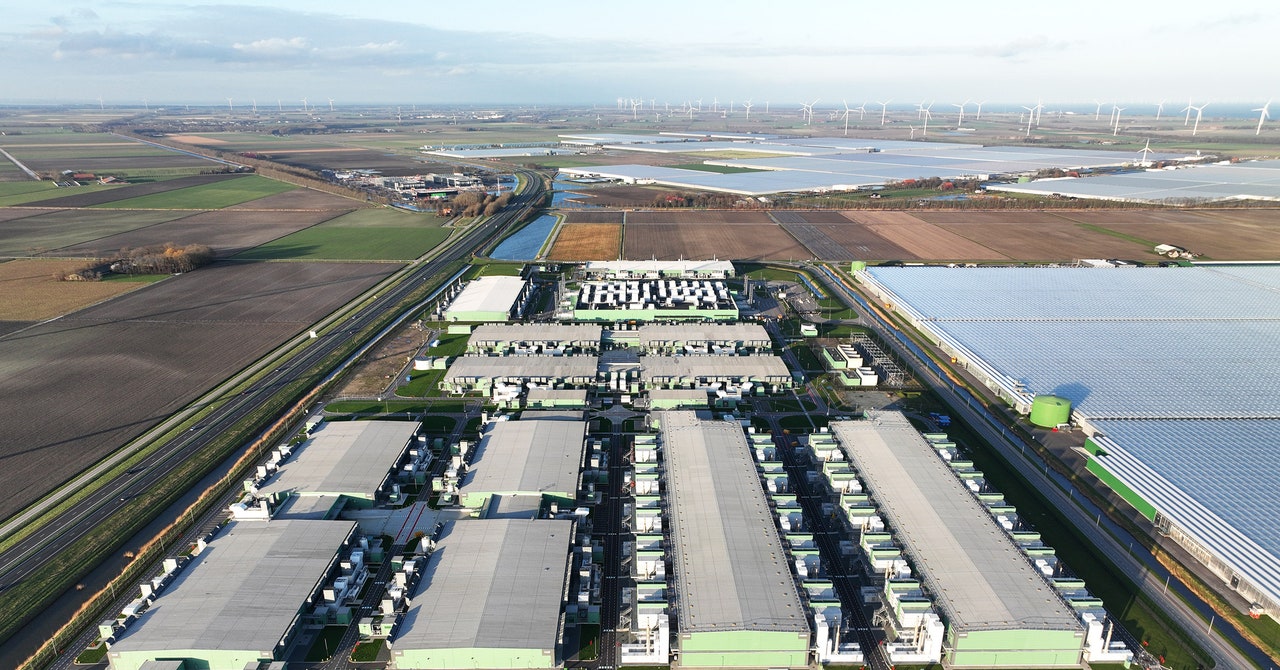As soon Lars Ruiter gets out of his car, he is confronted by a Microsoft security guard, who is already bubbling with anger. Ruiter, an alderman, has parked in the rain in front of a half-finished Microsoft data center that rises from the flat North Holland farmland. He wants to see the construction site. The guard, who recognizes Ruiter from an earlier visit when he brought a TV crew here, says that is not allowed. Within minutes, the argument has escalated and the guard has his hand around Rider’s throat.
The security guard releases Ruiter within seconds and the alderman escapes with a red spot on his neck. Back in his car, Ruiter insists he is fine. But his hands shake as he tries to shift gears. He says the altercation – which he will later report to police – shows the fog of secrecy surrounding the Netherlands’ growing data center business.
“We regret an interaction that took place outside of our data center campus that apparently involved one of Microsoft’s subcontractors,” said Craig Cincotta, general manager at Microsoft, adding that the company would cooperate with authorities.
The heated discussion between Ruiter and Microsoft’s security guard shows how controversial Big Tech data centers have become in rural areas of the Netherlands. As the Dutch government sets strict environmental targets to reduce emissions, industries are forced to compete for space on Dutch farmland, pitting big tech against the increasingly political populace of Dutch farmers.
There are about 200 data centers in the Netherlands, most of which rent out server space to various companies. But since 2015, the country has also witnessed the arrival of massive “hyperscalers,” buildings generally at least 10,000 square feet set up to serve a single (mostly American) technology giant. Lured here by the convergence of European internet cables, temperate climates and an abundance of green energy, Microsoft and Google have built hyperscalers; Meta has tried and failed.
Against the background of an increasing Dutch nitrogen crisis, building these hyperscalers is becoming increasingly controversial. Nitrogen, produced by cars, agriculture and heavy machinery used in construction, can be a dangerous pollutant that damages ecosystems and puts people’s health at risk. The Netherlands produces four times more nitrogen than the EU average. The Dutch government has pledged to halve emissions by 2030, including by persuading farmers to reduce their livestock or to leave the industry altogether. Farmers have responded with protests, blocking roads with tractors and manure and dumping slurry in front of the nature minister’s residence.
The courts have also stopped thousands of construction projects, forcing construction companies like Microsoft’s to apply for permits to prove they wouldn’t make the nitrogen crisis worse.
However, Microsoft’s newest data center has yet to receive those permits. The local environmental agency told WIRED it is still reviewing the company’s paperwork. In a system where farmer and home developer projects have stalled while they wait for nitrogen permits, you feel like Microsoft has jumped the line. “They don’t have the right building permit,” says Ruiter, representative of the municipality of Hollands Kroon. For him, it is a double standard to let Microsoft continue building while other construction work is postponed. “If farmers don’t have permission to build a farm, they won’t build the farm. Microsoft does not have proper permission to build a data center, but they have already started building the data center.”

